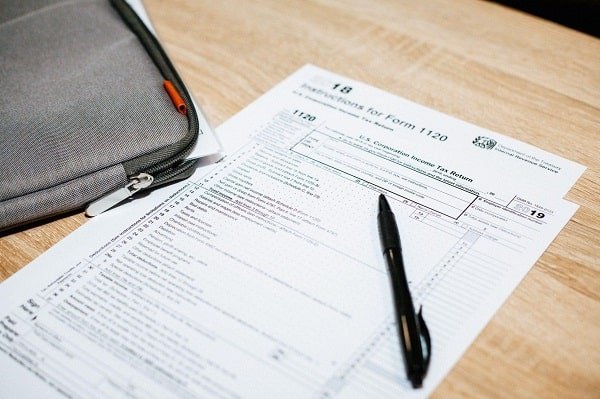Table of Contents
Section 111A of income tax act primarily focuses on short-term capital gains made by any investor. Depending upon the holding period of stocks or equity shares the profits generated from this kind of investment are regarded as short-term or long-term capital gains. If you are a seasoned investor and usually deal with short-term capital gains then you must have detailed information on section 111A of income tax act.
In this article, we will provide you with detailed information that will act as a guide whenever you want to earn short-term capital gains. So without further ado let us start.
About Section 111A
As per the regulation of section 111A of income tax act any investor will have to pay 15 percent taxation whenever he or she receives a short-term capital gain or in short STCG. But this section of the law is applicable in certain conditions such as if a HUF’s (Hindu Undivided Family) or an Individual’s gross income exceeds a certain threshold that is not chargeable to income tax.
If an investor holds equity shares for one financial year or less then the profit earned from it can be considered as STCG or Short-term Capital gains. As per the legislation of Income Tax act 1961, income from holding equities is dutiable under the two respective categories:
- STCG with the exception of section 111A of income tax act
- STCG under the section 111A of income tax act

You can claim a rebate of Rs. 12,500 if your income is within Rs. 5,00,000.
Conditions when section 111A of income tax act becomes relevant
In the following situations section 111A of income tax act becomes applicable for short-term capital gains:
- While an investor transfers funds through a recognized and certified stock exchange platform.
- Short-term capital gains are acquired after trading units of any trust.
- When you buy or sell equity-based funds or stocks.
- On the sale of equity shares or funds, Security Transaction Tax or STT is applicable.
- In the sale of business trust units, mutual funds, and other shares through a stock exchange STCG becomes applicable.
Examples of section 111A of income tax act
Circumstance number 1
Through the BSE or Bombay Stock Exchange R̥anjit trades the shares of Rama Pvt. Ltd. Ranjit held the shares for 8 months, therefore he will receive Short-term capital gains. In this case, the equity shares have been traded through well-established and certified stock exchange (along with the charged STT), section 111A of income tax act will be implied. A total of 15 percent tax will be levied on short-term capital gains (surcharge and cess will also be added).

Circumstance number 2
A man named Shekhar has sold all his mutual fund units through NSE or National Stock Exchange after holding them for almost 10 months, thus Shekhar also became entitled to the short-term capital gains. section 111A of income tax act also covers this option and a tax of 15 percent (with cess and surcharge) will be implied on Shekhar’s short-term capital gains.
If you sell an equity share within 12 months after acquiring it, it will be considered short-term capital gains.
Circumstance number 3
Angana has recently sold her debt fund units which she had been holding for 9 months. In this case, too Angana as an individual will be receiving short-term capital gains but this will come under section 111A of income tax act. Therefore, Angana will only have to pay the regular tax rate that is applicable for her depending upon her income in the respective financial year.
Important things to remember regarding section 111A of income tax act
- If your net income (including the short-term capital gain) after deducting taxes is not more than Rs. 2,50,000 then you will not be eligible for taxes. The tax implication under section 111A of income tax act will also be considered zero.
- When your net income (including short-term capital gain) is more than Rs. 2,50,000 then it is mandatory for you to pay 15 percent tax on your short-term capital gains. However, if your net income is not more than Rs. 5,00,000 then you will be able to claim a tax rebate under section 87A. The maximum rebate amount you claim as per the old and new tax regimes is not more than Rs. 12,500.
Exceptions under the section 111A of income tax act
There are specific circumstances when section 111A of income tax act will not be applicable to STCG or short-term capital gains. Here is a list of scenarios where the section 111A of income tax act is not levied upon:
- Foreign Institutional Investors (FII) will not come under section 111A of income tax because they are considered capital assets.
- If the asset acquired and traded by the investor is not stocks but capital assets.
- Securities Transaction Tax or STT is not levied upon the stocks that are listed on Stock Exchange in IFSC or International Financial Service Center.
If your total income after deducting the taxes is under the exemption limit while you are an Indian citizen, you will be able to set off short-term capital gains on equity investments in opposition to the deficit in your exclusion limit.
Deductions in case of short term capital gains
There are specific deductions that are permitted from the net income which is linked to the reduction associated with capital gains under section 111A of income tax act. The following deductions are permissibly related to section 111A of income tax act:
- Transfer of expenses
- Cost of acquisition
The income tax rebate under the section 88 of income tax act will only become applicable on total income if the income has any short-term capital gains included. This act can offer a tax rebate of a maximum of 20 percent on annuity plans or life insurance plans.
To reduce the tax burden on capital gains one needs to know about the crucial deductions of the income tax department. Section 111A of income mainly focuses on income earned through capital gains and provides us with an understanding of the eligibility criteria for paying taxes under this ruling.